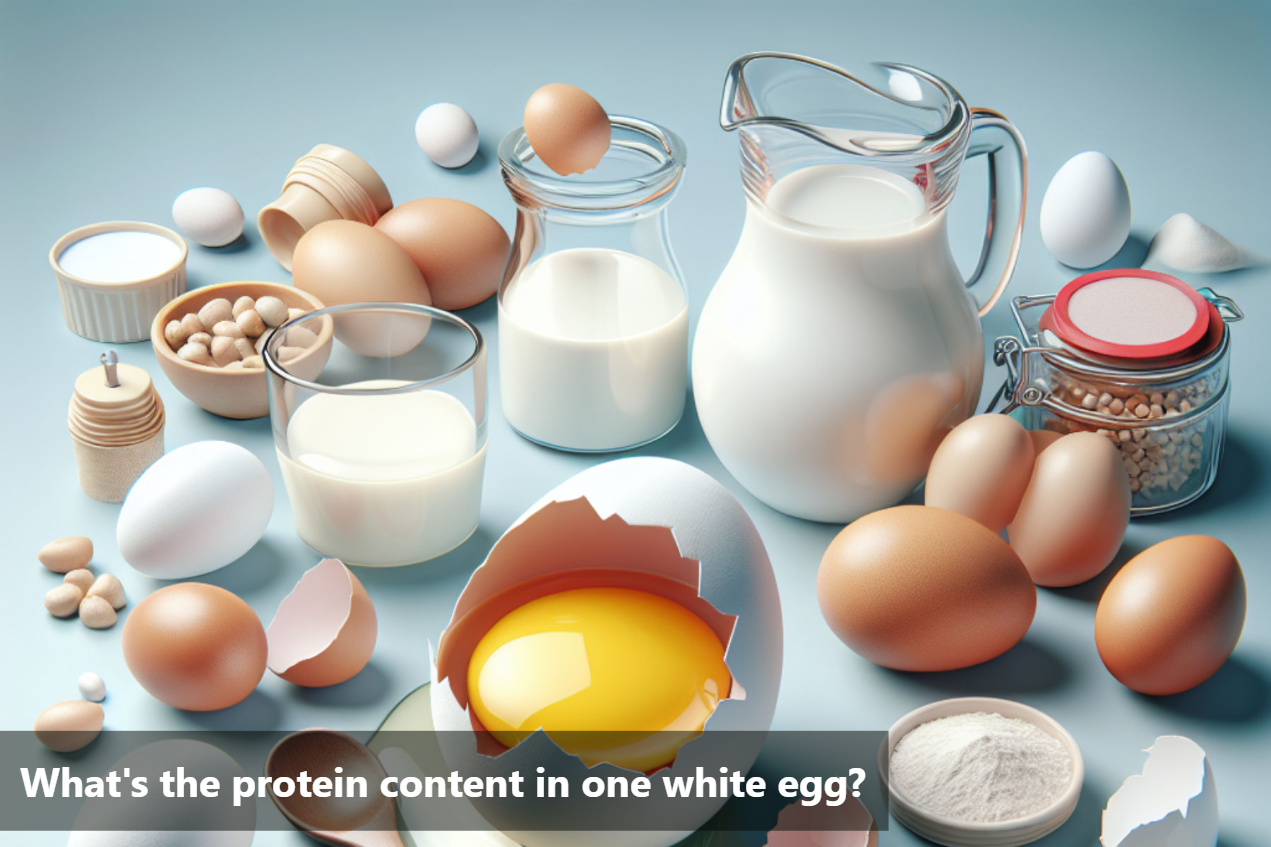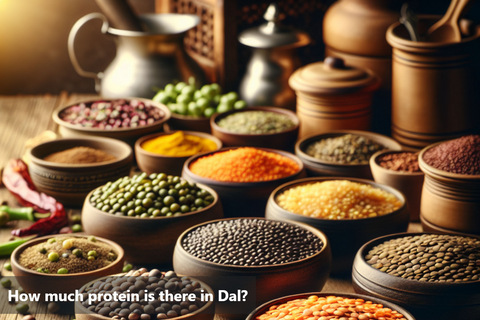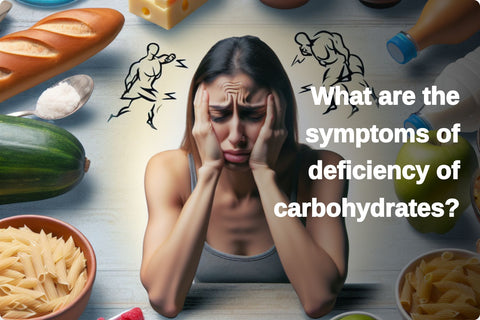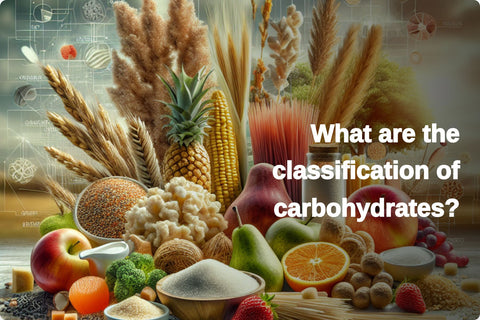
What's the protein content in one white egg?
Protein is an essential component of a balanced diet, playing a crucial role in various bodily functions. When it comes to protein-rich foods, eggs are often in the spotlight. One white egg, in particular, packs a significant amount of protein that can benefit our overall health.
Incorporating protein into our daily meals is vital for muscle repair, growth, and overall well-being. Eggs, especially the whites, are a convenient and versatile source of high-quality protein. With protein being the focal point of one white egg, it serves as a convenient option for those looking to boost their protein intake without consuming additional calories from the yolk.
Overall, understanding the significance of protein in a diet, particularly in one white egg, underscores the importance of making informed choices when selecting protein sources for a well-rounded and nutritious eating plan.

Nutritional Value of a White Egg
Energy |
71kCals |
Protein |
6.3g |
Carbohydrates |
0.3g |
Fats |
4.7g |
Iron |
0.8mg |
Zinc |
0.6mg |
Selenium |
15.4mg |
Folate |
23.5mg |
Choline |
147 mg |
Vitamin B12 |
0.4mcg |
Vitamin A |
80mcg |
Protein Content in One White Egg
A single large white egg contains around 6 to 7 grams of protein, making it a valuable protein source for individuals following a balanced diet.
This protein content plays a crucial role in meeting daily protein requirements, especially for those seeking a convenient and versatile protein option.
When we think about protein in one white egg, we're looking at a complete protein source that contains all essential amino acids necessary for various bodily functions, including muscle repair and growth.
Incorporating an egg into your daily meals can help boost your protein intake, which is vital for overall health and well-being.
Whether boiled, scrambled, or poached, the protein content in one white egg remains consistent, making it a versatile ingredient for diverse meal preparations.
Considering the protein density in a single white egg, it serves as a convenient option for individuals with specific protein goals or dietary preferences.
By including eggs in your diet, you can ensure a steady protein intake to support your body's needs and maintain overall health and wellness.
Comparison to Other Protein Sources
When comparing the protein content in one white egg to other common protein sources like chicken breast, tofu, and Greek yogurt, it's essential to understand the nutritional differences and benefits of each.
Firstly, a single white egg contains about 6 grams of protein, making it a convenient and cost-effective protein source. In comparison, a 3-ounce serving of chicken breast provides approximately 26 grams of protein, making it a higher protein option for those looking to increase their intake.
Tofu, a popular plant-based protein source, offers around 10 grams of protein per half-cup serving. It serves as an excellent alternative for vegetarians and vegans.
On the other hand, Greek yogurt contains roughly 17 grams of protein per 6-ounce serving, making it a versatile protein-rich food that can be enjoyed on its own or used in various recipes.
Each of these protein sources has its unique benefits, catering to different dietary preferences and needs.
-
While eggs provide a good source of protein with various essential nutrients, chicken breast offers a lean protein option, tofu serves as a plant-based alternative, and Greek yogurt adds variety to protein intake with its creamy texture and probiotic benefits.
Incorporating a variety of protein sources like eggs, chicken breast, tofu, and Greek yogurt into your diet can help you meet your daily protein needs while enjoying a diverse range of flavors and nutritional benefits.

Protein Content in a Single White Egg
As we consider the nutritional value of eggs, it is evident that they are not only versatile but also rich in essential nutrients. Incorporating this natural protein source into meals can greatly contribute to maintaining a balanced and healthy diet.
In comparison to other protein sources like chicken breast, tofu, and Greek yogurt, eggs stand out for their high-quality protein content. They offer a convenient and cost-effective way to boost protein intake while enjoying a variety of delicious dishes.
It is clear that eggs, with their rich protein content, deserve a special place in our daily meals. By recognizing and utilizing the protein in one white egg, we can enhance the nutritional quality of our diet and promote overall well-being. Make sure to include eggs regularly in your meal plans to reap the benefits they offer.
FAQs
-
Is the protein content in a white egg high?
Yes, white eggs are a good source of protein and provide a significant amount in a single egg.
-
Can the protein in a white egg help with muscle building?
The protein in white eggs can contribute to muscle building and repair due to its high amino acid content.
-
Are all the proteins in a white egg complete proteins?
Yes, the proteins in white eggs are complete proteins, containing all the essential amino acids needed by the body.
-
Are there any other nutrients besides protein in a white egg?
In addition to protein, white eggs also contain essential vitamins and minerals, such as B vitamins and selenium.
-
What are some other benefits of consuming white eggs for protein intake?
Consuming white eggs for protein intake can help in weight management, support satiety, and provide a convenient source of high-quality protein.
This Blog post is an initiative by Lo! Foods, to provide accurate and Nutritionist / Doctor approved information related to Health. Lo! Foods is India's leading brand for Everyday Functional Foods. Foods designed for specific Health conditions or Needs. Lo! Foods also runs India's largest range of Low Carb Healthy Cloud Kitchens, under the brand names of Lo!, ProteinChef, ATH (All Things Healthy) and DiabeSmart.















Leave a comment
Your email address will not be published.